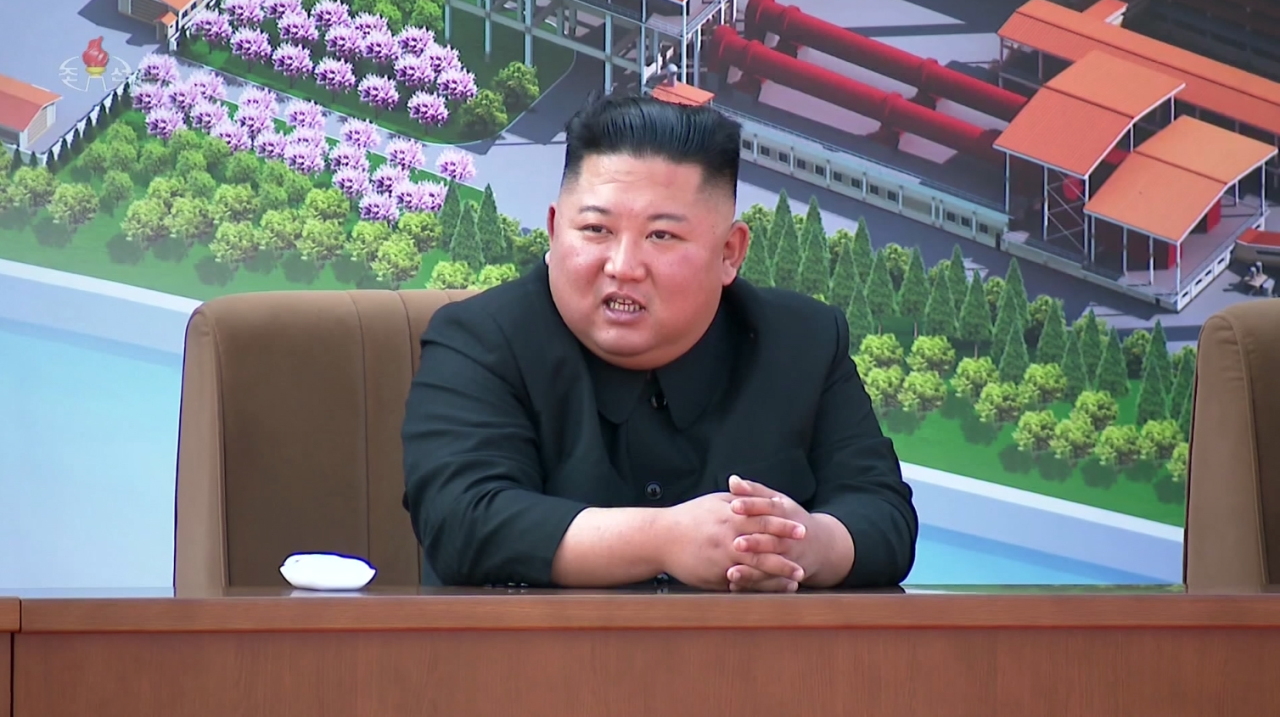 |
North Korean leader Kim Jong-un reappears after a 20-day absence to attend a ceremony marking the completion of a fertilizer factory in Sunchon, north of the capital, Pyongyang, Friday. (KCNA-Yonhap) |
The return of North Korean leader Kim Jong-un to the public eye on Saturday instantly dispelled rumors of regime change, as well as the snowballing concerns about turmoil in the markets here.
Observers specializing in North Korean issues suggested that even if the unlikely scenario of a leadership change were to take place, market volatility would likely be short-term and less extensive than the fallout from the COVID-19 pandemic.
“Since North Korea is under a dictatorship, it is inevitable that Kim’s health and safety should act as a very important variable for the stock market,” said You Seung-min, head of the North Korea research team at Samsung Securities.
“The uncertainty mostly comes from the lack of information and understanding of the current North Korea circumstances, but as the reclusive regime leader has officially reemerged in apparently fine condition, the market will not take visible impact.”
But global credit rating agencies keep a keen watch on geopolitical matters here, You added. In light of that and their consequent influence on investors’ decisions, market observers should not overlook North Korean issues, he said.
Major local brokerages had previously launched task forces exclusively in charge of North Korean issues, but most were disbanded as the talks between the US and North Korea fell through two years ago. NH Investment & Securities and Samsung Securities were the only two to keep theirs going.
 |
Samsung Securities head of North Korea research team You Seung-min (left) and NH Investment & Securities North Korea desk strategist Kim Byung-yeon |
The North Korea risk reemerged two weeks ago, after a CNN report claimed Kim Jong-un was in critical condition after surgery.
In response, the South Korean stock market dipped 1 percent -- a relatively minor effect compared with the turbulence caused by the new coronavirus over the past months.
The limited market impact was a deja vu -- recalling circumstances following the death of Kim’s father, Jong-il, in December 2011.
At the time, the main bourse Kospi plunged 3.4 percent but recovered the day after, while the local currency against the greenback remained stable.
“It’s very hard to predict how much impact North Korean risks deliver to the local market,” said Kim Byung-yeon, a North Korea strategist at NH.
“Regardless, it is true that the local indexes fluctuate as foreign investors tend to reduce their investment proportion in Korea and East Asian markets as risk-hedging actions.”
Addressing stocks related to inter-Korean economic cooperation, the analyst noted that their short-term fluctuations are relatively insignificant as they are momentum stocks rather than fundamental indicators.
But there is the possibility that US President Donald Trump’s reelection campaign may highlight Trump’s “close” relationship with the North Korean leader and trigger a rally in related stocks, he added.
While urging continued attention to North Korea, experts also pointed out that Seoul’s status as one of the world’s top 10 exporters and major financial players is what attracts foreign investors, regardless of the situation on the peninsula. Recently, the most dominant factor by far has been the COVID-19 pandemic, especially in regard to offshore investors.
By Jie Ye-eun (
yeeun@heraldcorp.com)









